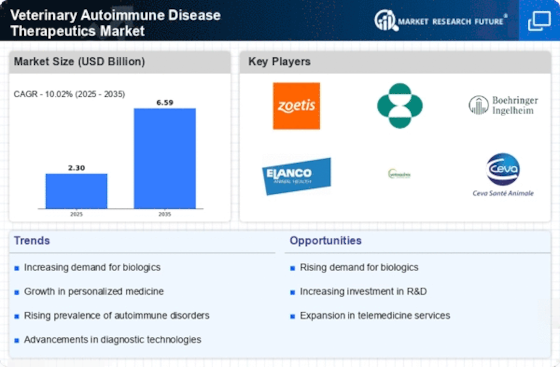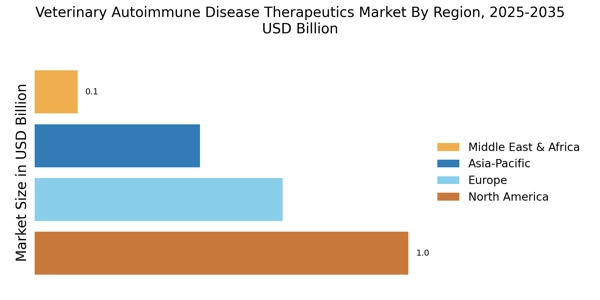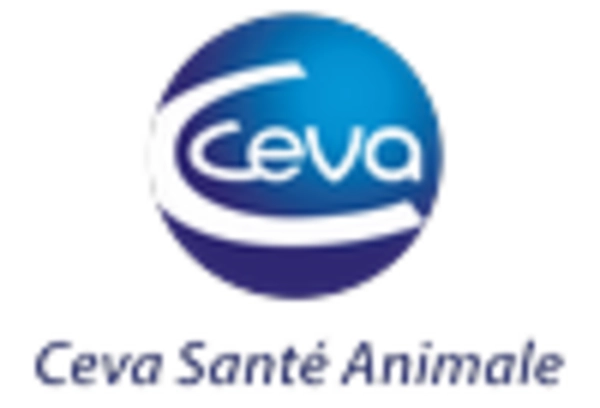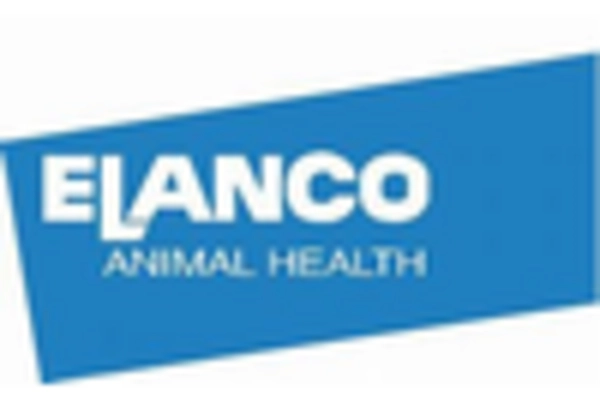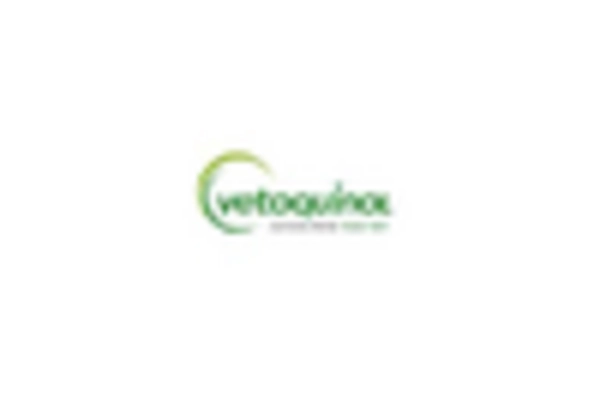Increasing Pet Ownership
The rise in pet ownership has been a notable trend, contributing to the expansion of the Veterinary Autoimmune Disease Therapeutics Market. As more households embrace pets as family members, the demand for veterinary care, including treatments for autoimmune diseases, has surged. According to recent statistics, pet ownership rates have increased significantly, with millions of households now owning dogs and cats. This growing pet population necessitates advanced therapeutic options to address various health issues, including autoimmune disorders. Consequently, veterinary practices are increasingly focusing on specialized treatments, thereby driving the market forward. The Veterinary Autoimmune Disease Therapeutics Market is likely to benefit from this trend, as pet owners become more proactive in seeking medical care for their animals, leading to a higher demand for innovative therapeutic solutions.
Rising Veterinary Expenditure
The Veterinary Autoimmune Disease Therapeutics Market is experiencing growth due to rising expenditures on veterinary care. Pet owners are increasingly willing to invest in their pets' health, leading to higher spending on diagnostics, treatments, and preventive care. Recent data indicates that veterinary spending has seen a steady increase, with many owners prioritizing their pets' well-being. This trend is particularly evident in the treatment of chronic conditions such as autoimmune diseases, where advanced therapeutics are often required. As veterinary practices expand their offerings and improve their capabilities, the market for autoimmune disease therapeutics is likely to flourish. The willingness of pet owners to allocate more resources towards veterinary care suggests a promising outlook for the Veterinary Autoimmune Disease Therapeutics Market.
Growing Research and Development Activities
The Veterinary Autoimmune Disease Therapeutics Market is benefiting from increased research and development activities aimed at understanding and treating autoimmune diseases in animals. Various organizations and institutions are investing in studies to explore the underlying mechanisms of these disorders and to develop novel therapeutic approaches. This focus on R&D is crucial, as it leads to the discovery of new drugs and treatment protocols that can significantly improve the quality of life for affected pets. Furthermore, collaborations between veterinary pharmaceutical companies and research institutions are fostering innovation in this field. As more effective treatments become available, the Veterinary Autoimmune Disease Therapeutics Market is expected to expand, driven by the demand for cutting-edge solutions to combat autoimmune diseases.
Regulatory Support for Veterinary Therapeutics
Regulatory support for veterinary therapeutics is a key driver of the Veterinary Autoimmune Disease Therapeutics Market. Governments and regulatory bodies are increasingly recognizing the importance of addressing animal health issues, leading to the establishment of favorable policies and frameworks for the approval of new veterinary drugs. This supportive environment encourages pharmaceutical companies to invest in the development of innovative treatments for autoimmune diseases. Additionally, streamlined approval processes can expedite the availability of new therapeutics in the market, ultimately benefiting pet owners and veterinarians alike. As regulatory bodies continue to prioritize animal health, the Veterinary Autoimmune Disease Therapeutics Market is likely to experience sustained growth, with a wider array of treatment options becoming accessible to those in need.
Technological Advancements in Veterinary Medicine
Technological advancements in veterinary medicine are playing a crucial role in shaping the Veterinary Autoimmune Disease Therapeutics Market. Innovations such as advanced diagnostic tools, telemedicine, and novel therapeutic agents are enhancing the ability to diagnose and treat autoimmune diseases in pets. For instance, the development of targeted therapies and biologics has revolutionized treatment options, providing more effective solutions for managing these complex conditions. The integration of technology in veterinary practices not only improves treatment outcomes but also streamlines the overall care process. As these advancements continue to emerge, they are likely to drive the growth of the Veterinary Autoimmune Disease Therapeutics Market, as veterinarians adopt new technologies to provide better care for their patients.


